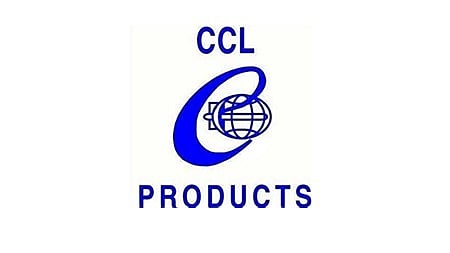JOE KURUVILLA, Chief Executive Officer of Raymond Lifestyle, charts out his priorities for the company, and his aspiration of transforming it into the 21st century model while stepping up focus on talent, digitization and key sustainability efforts
Your career spans global, regional and country roles at Unilever for 24 years, and your current role at Raymond since October last year. Through it all, what are some extraordinary on-ground experiences that have gone on to become learnings?
At the start of my career with Unilever, I was looking after the Household Care category, basically Vim Bar. Everybody was using bars when the whole market in the world had gone on to liquids. We had this innovation called a polycoat, a technology due to which the bar actually stayed for longer. It taught me that though the format might be less interesting from our point of view of the market, but it gave a benefit to the consumer, which was very much appreciated. For Unilever, the bars market today continues to grow, and so does the liquids market. One big insight I got is that in the Indian market, you can launch a lot of new formats, and they can co-exist with the current formats, as we have a very diverse market, and there is a product for every segment.
When I moved to South-east Asia, I was based in Thailand, and another big innovation we launched was based on an insight that people took wastage as a huge value erosion in the product. We were able to launch an innovation in liquids, wherein the liquid embedded into the sponge, and every time the consumer squeezed the sponge, the liquid was released on the surface they wanted to clean. I learnt that technology, if married with a great consumer insight, is able to make an impact and help us innovate faster. Genuinely solving a consumer need is really the heart of marketing. The only mission a brand leader needs to have is how to serve the consumers best. The entire paranoia to remain the leader was an important insight for me as I worked for Unilever for quite a while in these markets.
I also worked in markets in Europe and noted that consumers there were looking for complete delegation - they wanted the product to do the task. So we came up with some pretty interesting innovations, using tools and automation. Looking back at South Asia, South East Asia and Europe markets, I realize that a brand should be able to focus on what the consumer wants, rather than what the manufacturer or the brand-maker wants. The brand proposition probably could be common globally, but the way you deliver it to the consumer has to be as per the consumer needs in that particular country or region. Having spent almost 17 years abroad, I am really thrilled to be back in India. It was my dream to come back to India.
“I'm a very curious learner. I’m fascinated by technology and how it can improve people’s lives; how it can be a great force for change in this world. I'm very passionate about sustainability. If the corporate world can collaborate with the governments and NGOs in the ecosystem, we can really make a big difference. Other than that, I love reading and playing squash and badminton on weekends with my friends. I tend to read about 10-12 books, on varied topics, at the same time,” says Joe Kuruvilla.
How have you drawn up your priorities at Raymond? Did you need to make any changes or recalibrate in any way the working of the business once you joined?
I come from the consumer-facing FMCG segment. This is also a consumer-facing industry; so I just stuck to some very basic principles with regard to consumer obsession, customer-centricity, etc., and how to find a way to get innovative products which are enabled through digital means to connect with the consumer. As for the people in the organization, if you come across to them with a sense of authenticity and the desire to learn from them, they can be extremely welcoming, and that’s what I experienced at Raymond. I love this whole attitude of constant learning. You also have to listen. The biggest thing a leader can do is to listen to the people and clear their paths for what they desire to do. It's as simple as that.
I never tried to pretend to be an expert in textiles and apparels. But I clearly heard the experts and probably could guide them with a few thoughts from my side, and the organization responded quite well. Obviously, I started at Raymond right in the middle of a pandemic; so, it was challenging. But, we had a wonderful end to the last year, Q4 was quite strong. A lot of changes were coming in - people changes, business model changes - both on the product side, and the channel side, as well as category changes. It is exciting that there is an openness in the organization, recognizing the change. What better time for an organization to change than during a crisis? As some wise man said, never waste a crisis! Today, Raymond is responding pretty well to the crisis. Obviously, we've got a fantastic brand. We've got a strong set of ethics, product, quality and manufacturing. So, we come out with the best of best-in-class products. We have a reputation in the market with our trade and a fantastic set of trade partners who have been with us for generations. Our intention is to leverage that reputation and become a stronger voice in the fashion industry. We are also focused on Raymond making a positive impact in society, not just with our products, but also our sustainability initiatives. How do we become a voice of purpose and positively impact the lives of people, going beyond the profit motive? In the organization, I find people, especially the younger lot, are not just working for a company; they want to change the world. I want Raymond to be a place where young and talented people come in and make a positive impact on the world through our products and efforts around sustainability.
What has been the impact of the pandemic on the business, especially the formal clothing category, and what are you doing to mitigate the current challenges?
The pandemic has impacted the formal clothing segment for sure, but it will get over at some point of time and people will come back to their offices. In fact, in a lot of places, people have started coming back. Government regulations say 40% of the workforce can come back. We are pivoting to a portfolio which will have not just formal, but also casual brands, like ColorPlus and Parx, besides Raymond and Park Avenue. Can we do a lot more on casual brands? That clearly is the way forward. We are also redefining what formal means. The formal of the past is probably going to be different from the formal of the future. We're looking at innovations and products, which can enable consumers to wear clothes which are still formal, still from Raymond, but more with the environment, a little bit dressed down, without compromising on the overall formal look.
Even in the wedding space, there is a shift. Consumers have a choice to buy Raymond’s Western attire or ethnic clothes – kurtas, bandgalas and sherwanis are coming into play quite strongly. Our recent wedding campaign announces to the world that Raymond also offers a wedding collection which is on the ethnic side; not just Western collections, which we always had. Meanwhile, we need to keep evolving to meet fast-growing consumer needs.
How does Raymond use technology and digital integration to enhance the business?
We will go a lot more omni-channel, turning our 1,500 brick-and-mortar stores into 21st century stores. So, anybody who is browsing the online space would be able to click and collect their clothes from a nearby store of the Raymond network or get them delivered. We also want the customer to be able to connect with us and order through our back end. We aim to connect our network of 10-11 manufacturing units across the world digitally, and to use technology to empower the employees of this organization to add value to their jobs. From a consumer point of view, we need to build speed, what I call mind-to-market strategy at a tremendous level. We want to leverage technology to really transform Raymond to become the 21st century company that we all aspire for.
What are your top three focus areas going forward?
Number 1 priority is to navigate the organization out of the these very uncertain times. We have quite a few initiatives in play, to take on this disruption, to reshape the organization. Number 2 priority is about transforming this organization into what I would call the 21st century model. Raymond has been here for close to 100 years; we want it to be strong for the next 100. Number 3 priority is, how can Raymond be a force for good, become a very purposeful, and a sustainable company in an industry like fashion and apparel, which clearly can be far more responsible.
What is golden rule that guides you as a business leader?
Be passionate about what you do. Never do anything just because it needs to be done. That makes a difference. Whatever I do, I like to do it with my 110%.








.jpg)
